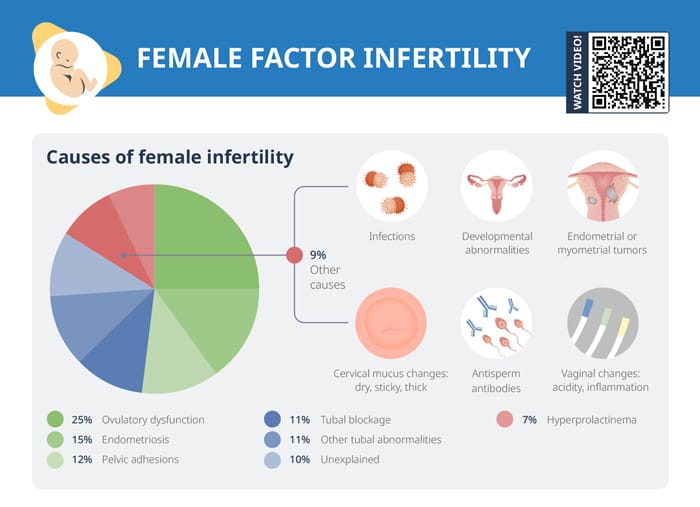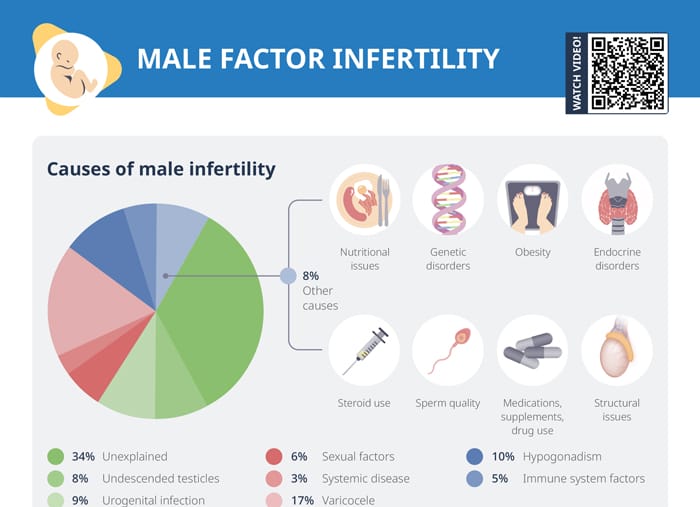Causes of male factor infertility
34% of cases of male infertility remain unexplained.
- Undescended testicles (8%)
- Urogenital infection (9%)
- Sexual factors (6%)
- Systemic disease (3%)
- Varicocele (17%)
- Hypogonadism (10%)
- Immune system factors (5%)
- Other causes (8%):
- Nutritional issues
- Genetic disorders
- Obesity
- Endocrine disorders
- Steroid use
- Sperm quality
- Medications, supplements, drug use
- Structural issues
Related videos
How to assess male clients presenting with infertility
History and physical examination
- Medical history: sexual development; severe systemic illness or trauma; infections; surgical procedures; drugs and environmental toxins; sexual history
- Complete physical exam, assess for obesity, endocrine disorders, general health
Semen analysis
- Collected after 2–4 days of ejaculatory abstinence
- Evaluation of semen volume, pH, sperm count, concentration, motility, morphology, and leukocytes
Ultrasound of accessory glands and ducts
Structural issues should be ruled out.
Genetic testing
Genetic tests can rule out genetic disorders, such as Klinefelter syndrome.
Endocrine testing
Assess total testosterone, LH, FSH, and additional labs, as indicated.
How common is male infertility?
Male infertility affects approximately 7% of men and is a contributing factor in around 50% of all infertility cases.
Nursing tips to support clients experiencing infertility
- Discuss lifestyle factors (diet, smoking, etc)
- Stress the importance of medical evaluation by a specialist
- Recognize the emotional impact of infertility and offer support through empathetic listening and encouraging the discussion of feelings
- Inform about fertility treatments and refer to support services
- Encourage open communication with the partner

